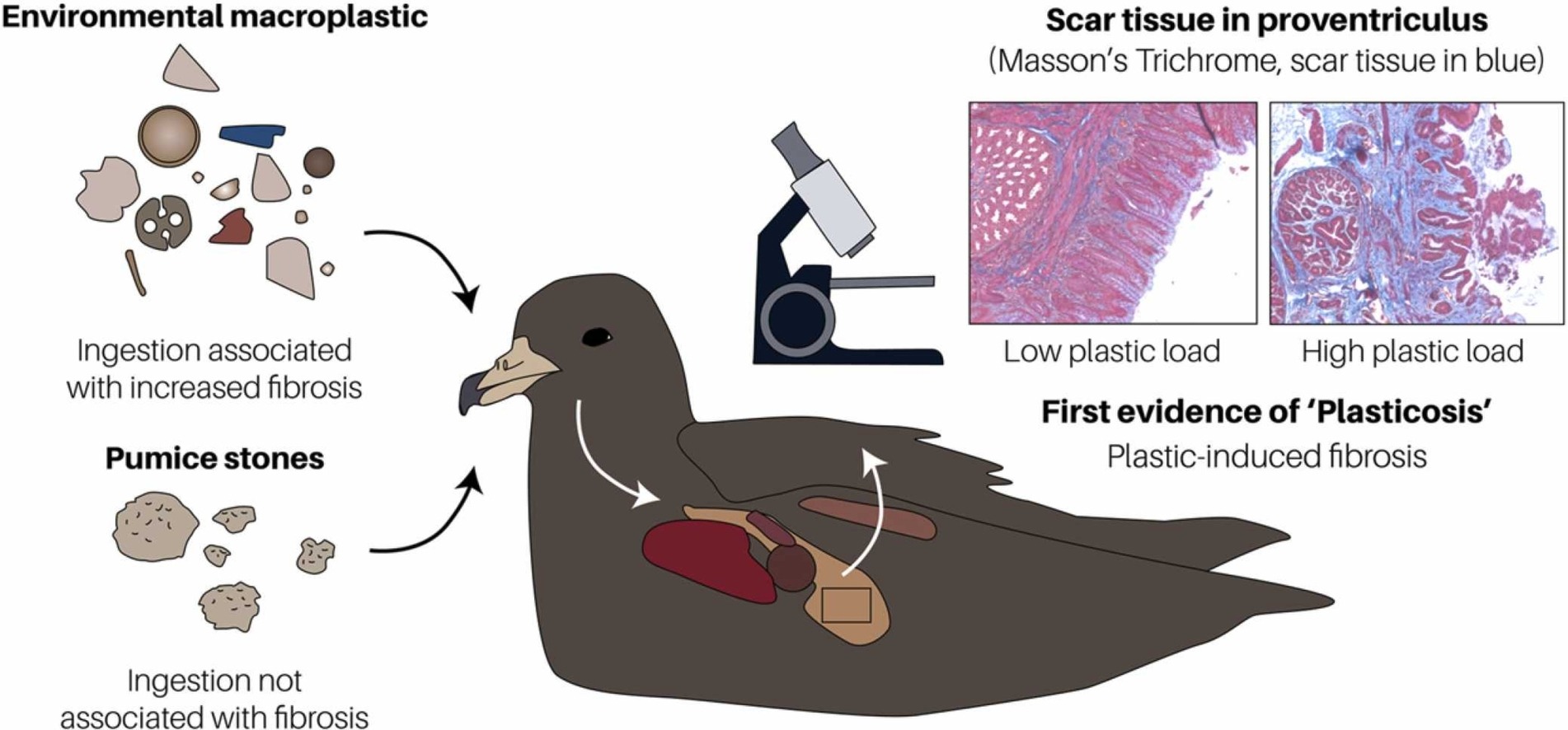 The graphical abstract of the paper, ‘Plasticosis’: Characterising macro- and microplastic-associated fibrosis in seabird tissues
The graphical abstract of the paper, ‘Plasticosis’: Characterising macro- and microplastic-associated fibrosis in seabird tissues
Hayley S. Charlton-Howard (Institute for Marine and Antarctic Studies, Tasmania, Australia) and colleagues have published open access in the Journal of Hazardous Materials on plastic-induced fibrosis – a novel disease the researchers have defined as, ‘plasticosis’. The study involved wild Flesh-footed Shearwaters, a bird species known for high levels of plastic ingestion, and examined the effect of plastic ingestion on the development of scar tissue in the stomachs of the birds.
The paper’s abstract follows,
“As biota are increasingly exposed to plastic pollution, there is a need to closely examine the sub-lethal ‘hidden’ impacts of plastic ingestion. This emerging field of study has been limited to model species in controlled laboratory settings, with little data available for wild, free-living organisms. Highly impacted by plastic ingestion, Flesh-footed Shearwaters (Ardenna carneipes) are thus an apt species to examine these impacts in an environmentally relevant manner. A Masson’s Trichrome stain was used to document any evidence of plastic-induced fibrosis, using collagen as a marker for scar tissue formation in the proventriculus (stomach) of 30 Flesh-footed Shearwater fledglings from Lord Howe Island, Australia. Plastic presence was highly associated with widespread scar tissue formation and extensive changes to, and even loss of, tissue structure within the mucosa and submucosa. Additionally, despite naturally occurring indigestible items, such as pumice, also being found in the gastrointestinal tract, this did not cause similar scarring. This highlights the unique pathological properties of plastics and raises concerns for other species impacted by plastic ingestion. Further, the extent and severity of fibrosis documented in this study gives support for a novel, plastic-induced fibrotic disease, which we define as ‘Plasticosis,’.”
Reference:
Charlton-Howard, H.S., Bond, A.L., Rivers-Auty, J. & Lavers, J.L. 2023. ‘Plasticosis’: Characterising macro- and microplastic-associated fibrosis in seabird tissues. Journal of Hazardous Materials. https://doi.org/10.1016/j.jhazmat.2023.131090
3 March 2023

 English
English  Français
Français  Español
Español